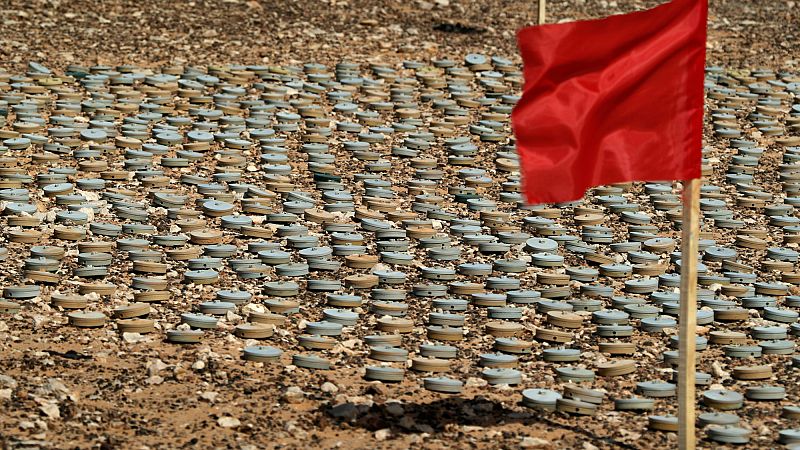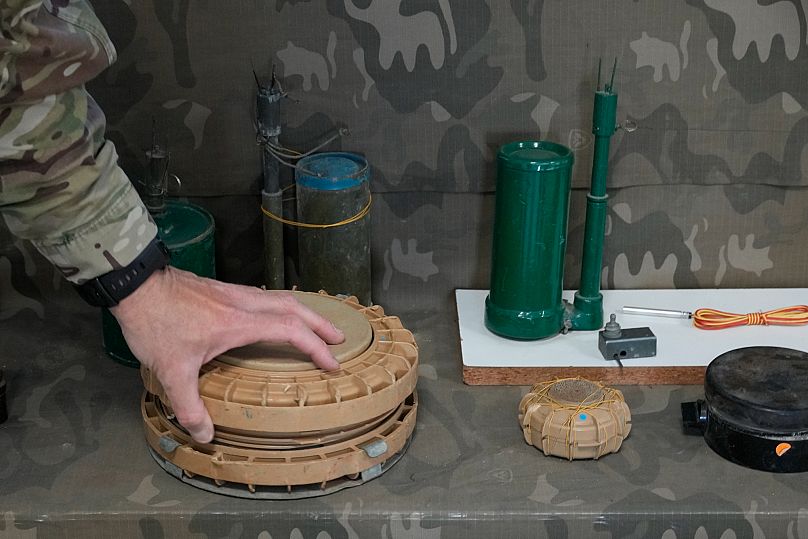Charities call for more global action on International Day for Mine Awareness

As the world marks International Day of Mine Awareness, charities have issued a renewed call for more global action as demining efforts backslide.
With many Baltic nations stating preparations to withdraw from the international convention against anti-personnel landmines, the International Campaign to Ban Landmines warns that demining efforts are regressing.
In March, the defence ministers of Latvia, Lithuania, Estonia, and Poland declared their intention to leave the 1997 anti-personnel mine treaty in the face of the "Russian threat", a setback to the EU's 2025 goal of a mine-free world.
Mines, explosive remnants of war, and improvised explosive devices continue to cause death and injury, especially in situations of armed conflict.
According to the United Nations, on average, one person is killed or injured by such an explosive device every hour, and the UN says children and the young are often the victims.
"I was 23 years old when I stepped on a mine, and I had great dreams and big ambitions, just like any young person," says Hasanali Aliyev, a mine explosion victim in Azerbaijan.
"Let’s put it this way: the amputation of part of a young person’s leg is not a minor or pleasant event—it is a very difficult process," he added.
Experts estimate that as many as 10 million landmines could be spread across some 64 countries around the world and that between two and five million new landmines are laid each year.
Landmines still kill in Europe
While Africa is the continent most severely affected by landmines, Europe is also hugely affected, with landmines still presenting a problem from conflicts in countries like Azerbaijan and Bosnia and Herzegovina.
In Azerbaijan, after decades of conflict, the government is actively conducting a programme to counter landmines, raise awareness, and protect the population.
"The rapid clearance of these mines and the reconstruction and restoration of those areas is a time-consuming issue," says Adil Aslanov, Head of the Methodology and Training Department of the Mine Action Agency, Azerbaijan.
"Therefore, the scale of ANAMA's demining operations has significantly expanded. And within the framework of demining operations, we first carried out targeted mine clearance operations to develop communication lines, roads, water sources, and all other infrastructure in those areas."
Ukraine is also particularly badly affected, with around a third of its territory estimated to be mined.
According to the UNDP, Ukraine is estimated to be littered with hundreds of thousands of explosive remnants of war, part of the catastrophic consequences of more than three years of full-scale war.
The estimated costs to clear the landmines and unexploded ordnance range between €30 million and €35 million. While the government says they are committed to doing this, they have also lamented a shortage of trained specialists.
However faltering peace talks between Kyiv and Moscow stumble along, removing the estimated two million landmines, as well as the hundreds of thousands of unexploded rockets, missiles, mortars, and grenades, will be crucial to guaranteeing future security in Ukraine.
And for victims of mine explosions like Aliyev, raising awareness about the dangers of landmines, especially for those living in war-affected regions, must continue.
"This would be a crucial step in protecting lives and ensuring safety," he said.
Today


